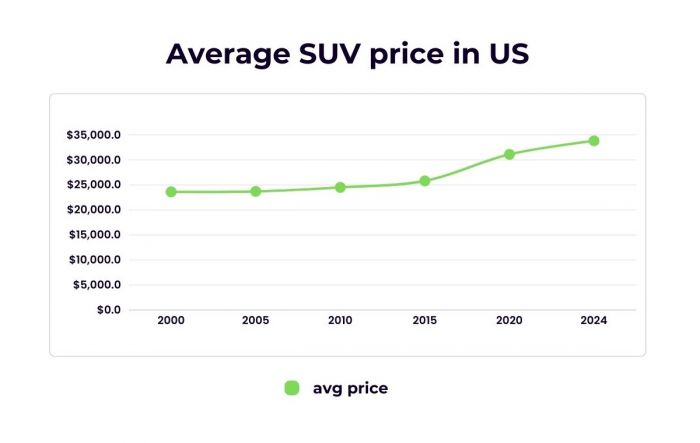Lots of drivers have experienced the problem of hesitation and power drops when driving. It feels just like something is holding the rear of your car and pulling the vehicle back. This is most commonly described as hesitation during acceleration but there are other ways to talk about it and some drivers prefer saying that their vehicles are pulled back.
Engine use issues highlights
- Level of importance:medium
- When done:driving the vehicle
- Cost of mistake:$250 - $3,500
- How to avoid:read driver's manual, learn more about the engine you have
- Consequences:inefficient driving, fatal engine issues
- DIY solutions:possible

What should you check if your vehicle is being pulled back?
Lots of drivers ask us a seemingly simple question: My car is pulling back, what should I do? We need more information to answer this question. And in most cases, you will have to notice some important changes in how your car behaves on the road. If something is changed, you need to understand the reason why this may have happened.
Also, you should check if hesitation is one of the common problems with your engine. Maybe, your engine model is prone to this problem because of failing units or parts. If this is the case, you should start by checking this common issue and then move on if everything is fine there.
Here's what you may notice:
- there is a check engine light every time the car is being pulled back - just provide the vehicle with code scanner diagnostics;
- the vehicle hesitates only some time after you press the pedal and then goes as it should - the ignition system should be checked;
- there is a changed sound of the engine - it feels like roaring louder or making some other noises - engine and exhaust system should be inspected;
- the exhaust smells like gasoline or even the engine bay smells like gas - check the fuel supply system;
- the engine works harshly and vibrates - the problems may be with the timing system, valves, or failure of one of the cylinders;
- gas mileage drops whenever this happens to your engine - fuel supply, ignition, or electric problems are possible;
- the engine is glitching, there is no consistency in what it's doing - you should check the ECU, wiring, and also software.
As you see, lots of problems can cause this unpleasant issue. Sometimes, you can locate the problem by yourself, but most often you will need professional help. It's not easy to say if one cylinder fails or if one of the fuel injectors glitches and works poorly. For this, you will need to know how to diagnose the engine in your vehicle and also have some tools for this.
Not all cases are easy. Sometimes, you will need to cope with more complicated problems. For example, two or three issues may be there at once in your vehicle, and diagnosing will obviously be very complicated. If your car has several issues, it's always better to go to the professionals and let them do their job.
Can you diagnose this if you have the code scanner?
Car scanners have become really affordable and now lots of drivers have their scanner in the glove box, just in case. If you know how to use it and have the proper software for this, you can learn a lot of important information about your vehicle. But what should you look at in the case of your car being pulled back when driving?
Diagnosing, in this case, will not be easy. You should read some codes at first, but you can't be sure that the problem will throw some code. In many cases, the problem with spark plugs, ignition coils, wiring, rich or lean air-fuel mixture, and even some sensors will not send any code to the ECU. So, your scanner will not be able to locate the issue.
But if you are a professional, you can see a lot of additional info about the air-fuel mixture, air volume, fuel quantity, pressure, etc. And this will help you make much more conclusions than if you just simply looked for error codes. So, the scanner may help you, but it doesn't show you all the angles of the problem.
What are the most common reasons for car hesitation?
We've checked car forums and spoken to car mechanics to make sure these issues listed below are really the most common reasons for your car being pulled back. But we should warn you that this doesn't include all the possible problems that will cause this issue. It's possible that your vehicle developed one of the less common failures.
Here are the reasons for car hesitation that you should check first:
1. Fuel injection system problems
This is not only about fuel injectors themselves, although they are the most obvious culprits. You should also check the fuel pressure which may be low because of pump failures. One more thing is the fuel filter - if it's dirty, it can change the fuel pressure in the system. Also, check the intake valves. In port injection, they are mostly OK, but in direct-injection cars, they may get some carbon buildup.
2. Air intake problems
There may be some blockage in the system that supplies your engine with air. The most common issue is the clogged air filter. Also, blockages may be formed in the pipes that deliver air to your engine.
One more thing to check is the throttle unit. The throttle may be clogged, dirty, or just malfunctioning. This will cause problems with air intake which will change the air-fuel mixture ratio.
3. Engine sensors
In most cases, broken sensors will cause the check engine light on your dash, but not always. Sensors that control the throttle body are the most important, but there are also air-volume sensors, pressure sensors, oil sensors, crankshaft and camshaft position sensors, etc. All of them can cause engine issues and they can even launch the limp mode in your engine.
Checking sensors is pretty complicated. In car shops, mechanics will most likely install working sensors and see if the problem is gone.
4. Spark plugs and ignition coils
Ignition system problems may cause hesitation and other effects. If one of the spark plugs or coils isn't functioning correctly, one of the cylinders will not work or will work intermittently. It means that the engine will lose some power and at times will feel too sluggish. This will cause the feeling that someone pulling your car back.
The problem may be with the spark plugs or coils or it may be with the wiring. Checking this is not that easy, but in older engines, you can check it by yourself. Just watch some tutorials first.
5. Timing system failures
If the problem is persistent and doesn't change even after some time, the answer may be in the timing system. If the chain or the belt has jumped a little and changed its position, most engines will stall and have problems with valves, rocker arms, etc. But some engines will keep working with improper timing. This will cause huge fuel consumption, dreadful hesitation, unpleasant sounds from the engine bay, etc.
Problems with the timing system shouldn't be ignored - they should be addressed immediately to save the most important parts of your engine block and head.
6. Limp mode
Your engine may have just gone to the limp mode and now the ECU allows you to use only a small fraction of its power. It means that you will not be able to drive the vehicle as fast as you want. You will only be able to drive it to the nearest repair shop for proper inspection and repair.
The limp mode could be activated because of hundreds of different failures. A good diagnosis is needed to learn more.
How to fix the hesitating vehicle?
If your car feels like it's being pulled back, the most obvious solution for you is to arrange a visit to the local dealer or repair shop. Ask a mechanic to inspect all the engine systems to find the reason for hesitation.
But if you are brave enough and aren't afraid to get your hands dirty, you can check some of the most common issues by yourself. Check this guide and the list of failures that will most commonly cause the engine hesitation and inspect whatever you can inspect on your own.
You will probably still need some professional help with the repair. Never diagnose or repair your vehicle if you aren't sure of what you are doing - this will only make things worse.
About the authors
The CarAraC research team is composed of seasoned auto mechanics and automotive industry professionals, including individuals with advanced degrees and certifications in their field. Our team members boast prestigious credentials, reflecting their extensive knowledge and skills. These qualifications include: IMI: Institute of the Motor Industry, ASE-Certified Master Automobile Technicians; Coventry University, Graduate of MA in Automotive Journalism; Politecnico di Torino, Italy, MS Automotive Engineering; Ss. Cyril and Methodius University in Skopje, Mechanical University in Skopje; TOC Automotive College; DHA Suffa University, Department of Mechanical Engineering






Add comment